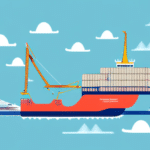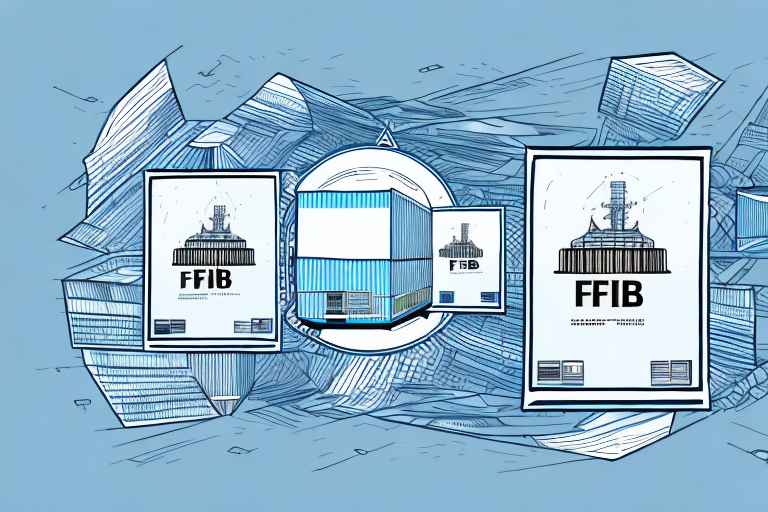Understanding FOB Shipping Point in International Trade
In the realm of international trade, understanding shipping terms is crucial for both buyers and sellers. One such term is FOB Shipping Point, which plays a significant role in determining the legal title and responsibility for goods during transit.
Definition of FOB Shipping Point
FOB Shipping Point, also known as Free on Board Shipping Point, is a shipping term that indicates the point at which ownership and responsibility for goods transfer from the seller to the buyer. Specifically, once the goods are loaded onto the carrier at the origin, the buyer assumes all costs and risks associated with transportation.
FOB Shipping Point vs. FOB Destination
It's important to differentiate FOB Shipping Point from FOB Destination. While FOB Shipping Point transfers responsibility at the origin, FOB Destination means the seller retains responsibility until the goods reach the buyer's location. This distinction affects who bears the risk of loss or damage during transit.
Legal Implications of FOB Shipping Point
The legal title transfer under FOB Shipping Point has several implications:
- Ownership Transfer: Legal ownership passes to the buyer once goods are loaded onto the carrier.
- Risk Assumption: The buyer is responsible for any damage or loss after the goods have been shipped.
- Contractual Clarity: Clearly defines responsibilities, reducing potential disputes between parties.
For a comprehensive understanding of international trade terms, refer to the Incoterms 2020 by the International Chamber of Commerce.
Impact on Buyer’s Responsibilities and Risks
Adopting FOB Shipping Point affects buyers in several ways:
- Control Over Shipping: Buyers can negotiate directly with carriers, potentially reducing transportation costs.
- Insurance: Buyers need to secure appropriate insurance to cover risks during transit.
- Logistics Management: Greater involvement in the shipping process requires efficient logistics planning.
According to the U.S. Department of Commerce, proper management of these responsibilities can lead to more streamlined operations and cost savings.
Pros and Cons of Using FOB Shipping Point
Like any shipping term, FOB Shipping Point has its advantages and disadvantages:
Advantages
- Cost Efficiency: Buyers can often negotiate better shipping rates.
- Transparency: Clear delineation of responsibilities minimizes misunderstandings.
- Control: Buyers have more control over the shipping process and carrier selection.
Disadvantages
- Increased Risk: Buyers bear the risk of loss or damage once goods are shipped.
- Logistical Burden: Managing transportation requires additional resources and expertise.
Businesses should weigh these factors carefully to determine if FOB Shipping Point aligns with their operational capabilities and risk tolerance.
Documenting FOB Shipping Point Transactions
Accurate documentation is essential for FOB Shipping Point transactions to ensure legal and financial protections:
- Sales Contracts: Clearly specify the use of FOB Shipping Point and outline each party's responsibilities.
- Shipping Documents: Include bills of lading that indicate the point of shipment.
- Insurance Policies: Ensure that adequate coverage is in place to protect against potential losses.
Implementing robust documentation practices can help prevent disputes and facilitate smooth transactions. For more detailed guidelines, refer to resources provided by the American Bar Association.
Future Trends in FOB Shipping Point
The landscape of international trade is continuously evolving, and FOB Shipping Point is no exception. Emerging trends include:
- Digitalization: Technologies like blockchain are streamlining documentation and enhancing transparency.
- Sustainability: Increasing focus on eco-friendly shipping practices may influence shipping term preferences.
- Regulatory Changes: Shifts in international trade policies can impact the applicability and usage of FOB terms.
Staying informed about these trends is crucial for businesses to adapt and optimize their international trade strategies. Insights on future trade practices can be found in reports by the United Nations Conference on Trade and Development.
Conclusion
FOB Shipping Point is a pivotal term in international trade that delineates the transfer of ownership and responsibility for goods during transit. By understanding its definitions, legal implications, and the associated risks and responsibilities, businesses can make informed decisions that enhance their operational efficiency and mitigate potential risks. Proper documentation and staying abreast of future trends further ensure that companies can navigate the complexities of global trade successfully.






















